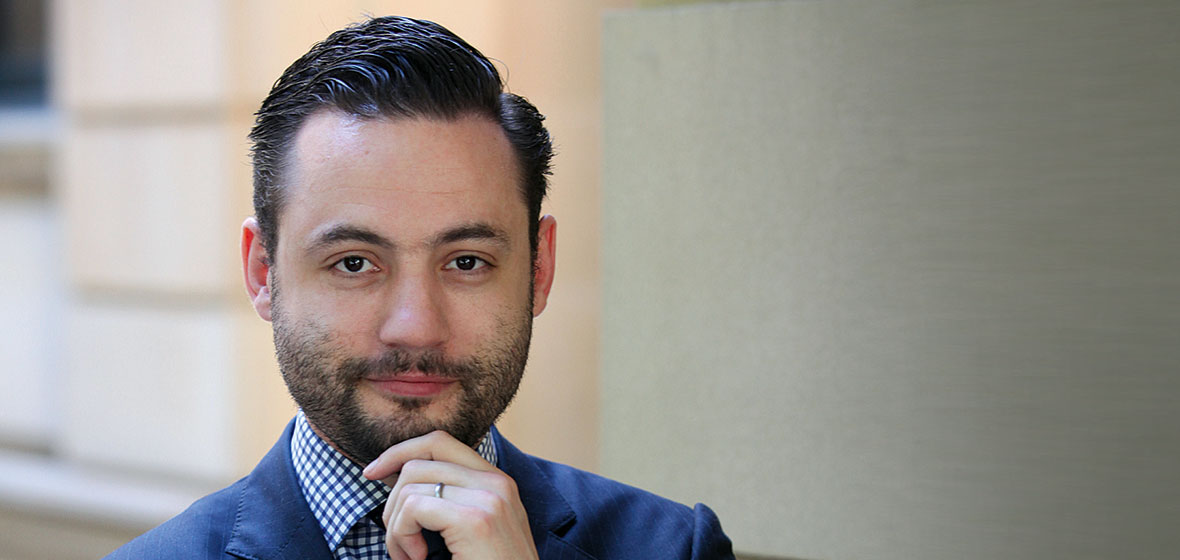Thomas Spohr’s office looks south over the seedier parts of Sydney towards Central Station. It seems appropriate, as his work is filled with grim stories of crimes involving money, drugs, violence and dishonesty. Like many prosecutors, Spohr rarely deals with the good guys, except for the police whose work he relies upon to win cases. 2016 marks 10 years since he was admitted as a solicitor and his career also has involved nine years of service to NSW Young Lawyers, including a year as President in 2014. In November, Spohr received the Young Lawyer Exceptional Achievement Award in recognition of his contribution to NSW Young Lawyers. As one of 341 solicitors at the Office of the Director of Public Prosecutions NSW (DPP) he has had some success, too. Some of his key cases have included one of Australia’s largest fraud cases involving $45.3 million misappropriated by Castle Hill accountant Rajina Subramaniam; the conviction in 2012 of Hells Angels boss Felix Lyle, who pleaded guilty to attempted fraud of more than $2.1 million; and the case of Carnita Matthews, who appealed against her conviction for a traffic offence allegedly committed while wearing a burqa. Spohr, 32, fell into law after high school in Peakhurst and a gap year in Germany. He studied law at the University of Wollongong, just down the road from his family’s motel in Fairy Meadow. He joined the DPP on a 24-week graduate program and soon met his wife, Rebecca Pleming, who left the DPP and is now a senior associate at Norton Rose Fulbright. Spohr also dabbled in private practice as a defence lawyer but returned to the DPP in 2010. He shares stories from his work life with JANE SOUTHWARD.
It’s fair to say you don’t do criminal law for the money. For me, it has always been my passion. As far as the human condition goes, you get to see the whole spread of society in criminal law. And there’s an intellectual challenge when you try to figure out what’s going on in somebody’s mind. It’s not something you get in other areas, except maybe personal injury.
As a kid, I hated cop shows and I can’t watch them today, either. My wife has banned me from being in the room because I yell at the TV when crime shows are on. It’s a weird combination of some parts being too realistic and other aspects being terribly unlike my day-to-day life. They certainly don’t capture the drudgery of reading and tabbing briefs and doing your own photocopying. You don’t see a lot of that on TV.
At the Office of the Director of Public Prosecutions, you have somewhere between 23 and 30 cases on the go at one time. They each are at various stages and often I will get matters just after somebody has been charged. Cases often are allocated very early, before any evidence has been served on anybody. As the brief comes in, I make an assessment about what the evidence shows and whether the charges are right. Then I have to tell the police the aspects of evidence that are missing.




